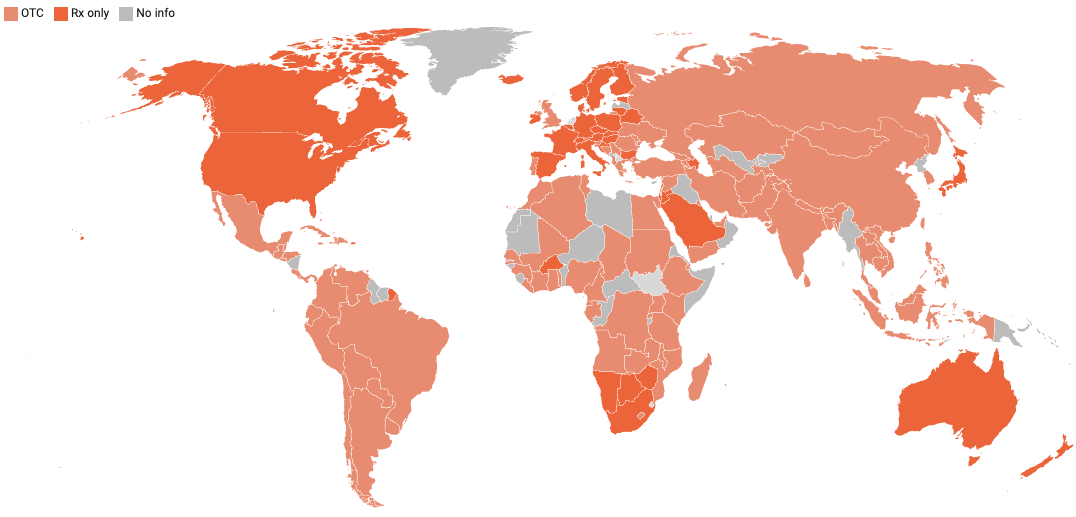

The folks who are deeply involved with this issue say this is a game changer, and we're certainly in no position to say otherwise. Yesterday, the FDA approved Opill for over-the-counter sales. With this development, the U.S. joins a list of over 100 countries that allow people to purchase birth control pills without a prescription.
It's actually worth a moment to take a look at the map available at that link, because it may not be what you expect:

Per the key in the upper left, dark orange countries require a prescription for birth control (obviously the United States' color has not been updated yet) while light orange countries sell the medication over the counter. So, the U.S. just broke ranks with most of the industrialized democracies of the world, and joined with the nations that are poor, developing and/or overpopulated.
Again, we are hardly experts in this subject, but the message of that map seems crystal clear to us. Opill, which contains the hormone progestin, has some downsides, as most drugs do. Most notably, it can increase the risk of breast cancer, it can lead to excessive bleeding and it isn't effective if not taken in the same 3-hour window each day. But it's been around for half a century, and the world's poor, developing and/or overpopulated countries appear to have decided that they simply cannot afford to be overly fastidious about this issue.
Now the U.S. appears to have reached that point as well. And that's where the political angle comes in. The anti-abortion forces in the country saw Dobbs as a great victory for them. Which it was. But every reaction has an equal and opposite reaction, and the easier access to Opill is a part of that counter-reaction from the government and from pro-choice forces.
We have no doubt that a couple dozen red-state attorneys general will soon file suit, trying to stop the FDA in its tracks. More specifically, gazing into our crystal ball, and drawing on our remarkable foresight, we predict that case will be filed in Amarillo, TX. But it's going to be a real uphill climb to overturn approval of a drug that's been available in the U.S. since 1973. And more broadly, there are so many ways for women, even in red states, to get their hands on birth-control and abortifacient pills, it's inconceivable that the red-state governments will be able to shut all pathways down.
If the anti-abortion movement had contented itself with eliminating surgical abortions to the greatest extent possible, it might have had considerable success with that, at least in the short-to-medium term. But the tendency to go after almost all forms of birth control? Sure looks like they picked a fight they cannot win. Of course, given how many politicians have embraced anti-abortion because it's a useful wedge issue, as opposed to because they are actually anti-abortion, an unwinnable fight might be exactly what they want. (Z)